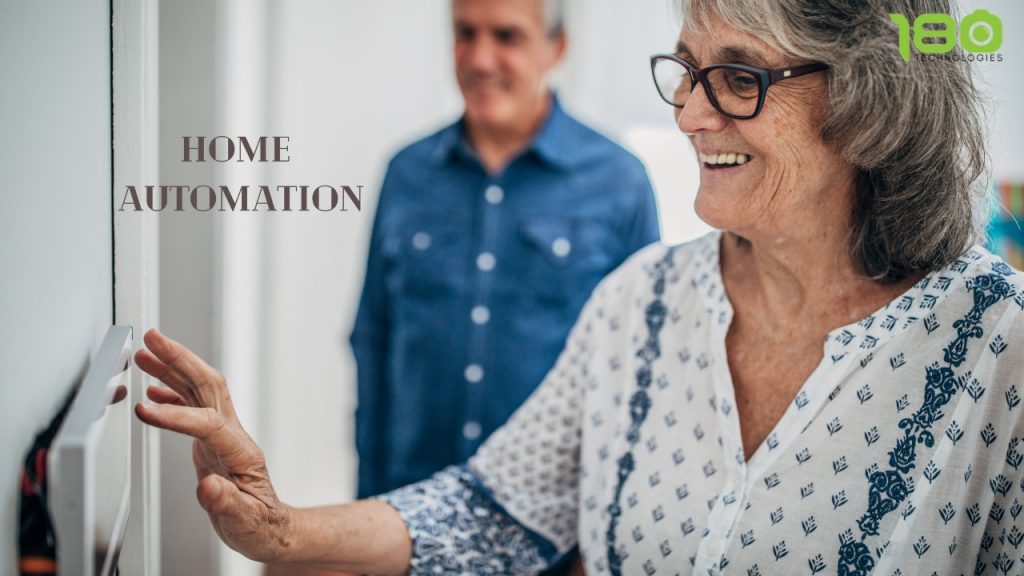Blogs

Guide For Home Automation
Consider how convenient it would be if your home’s lights went on automatically when you entered the room, your doors automatically closed when you exited, and your thermostat automatically maintained the perfect temperature in your home.
All of this is possible—and more—with home automation. Best of all, it’s more accessible and affordable than ever before, allowing you to realize your dream of having a smart home.
Although home automation may appear to be difficult, the crux of what it is and how it works is actually quite straightforward.
What Is Home Automation?
In a word, home automation is the use of technology to connect numerous devices and systems around the house so that various functions can be automated. For example, if you set up a home automation system, your home can automatically alter the temperature, adjust lighting, lock doors, and arm your security system based on the parameters you choose.

Key Components Of Home Automation
There are many levels of capability when it comes to home automation and control. Here are a few examples:
Automation – You may automate numerous operations around your home with a complete home automation system by triggering one action with another. When you leave or arrive, your smart thermostat, for example, adjusts the temperature to save energy, and when the front door is unlocked, the entryway lights switch on.
Control – Controlling your house remotely is another important feature of an automated home. You can turn lights on and off, lock and unlock doors, and arm and disable your security system from anywhere using an app on your smartphone, to mention a few examples.
Monitoring – The ability to monitor your home remotely is the most basic level of home control. You can, for example, use an app to check your home’s temperature, monitor your video camera feeds, or see if your garage door is open.
When all of these things come together, you’ll have a complete home automation system that will make life easier for you and your family.
Why Smart Homes?
Anyone everywhere may benefit from home automation. The following are some of the advantages of smart home automation:
Control From Any Location – A smart home allows you to control numerous features of your home from a different room or state, all through a smartphone app. You don’t need to rush home to let a repairman in or phone a neighbour to see if you left a door unlocked—you can handle everything from the palm of your hand.
Improved Accessibility – Smart home automation also increases your home’s accessibility. You can, for example, check camera feeds from afar.

Convenience – Home automation improves the quality of life. The ability to automate processes in your house allows you to focus on more important matters.
Comfort – Your home will be a more comfortable place to live as a result of home automation. You may adjust illumination based on the time of day or set your thermostat to your favorite setting automatically.
Hands-Free Control – People with disabilities can use smart home technologies to control and access their houses without having to use their hands. A smart speaker can manage several tasks, such as lighting and temperature, using voice commands.
Savings – Did you realize that home automation might save you money as well? You may save money on your monthly costs by turning off lights when they’re not in use and automatically altering the temperature so you’re not heating or cooling an empty house. A smart thermostat, for example, can save homeowners up to 12% on their annual energy expenses.
Conservation Of Energy – Home automation not only saves money but also saves energy. You may help save energy and reduce your carbon impact by installing lights that turn off automatically when no one is home.
What Is It Possible To Automate?
Many gadgets, from kitchen appliances to thermostats to door locks, may link to the Internet and become part of a smart home, according to any electronics or home retailer.
With that in mind, here are a few of the most prevalent and well-known smart home automation systems:
- Controlling the temperature and climate
- Home safety is important.
- Lighting both indoors and outside
- Monitoring for fires and carbon monoxide
- Entertainment
- Purification of the air
- Appliances for the kitchen
- Upkeep of the house
You’ll find unique gadgets with varying features and capabilities inside each of these categories.
Recent Posts
Latest Post

Motorized blinds: Best smart home luxury
July 5, 2023
Why does your villa require smart home automation?
June 29, 2023